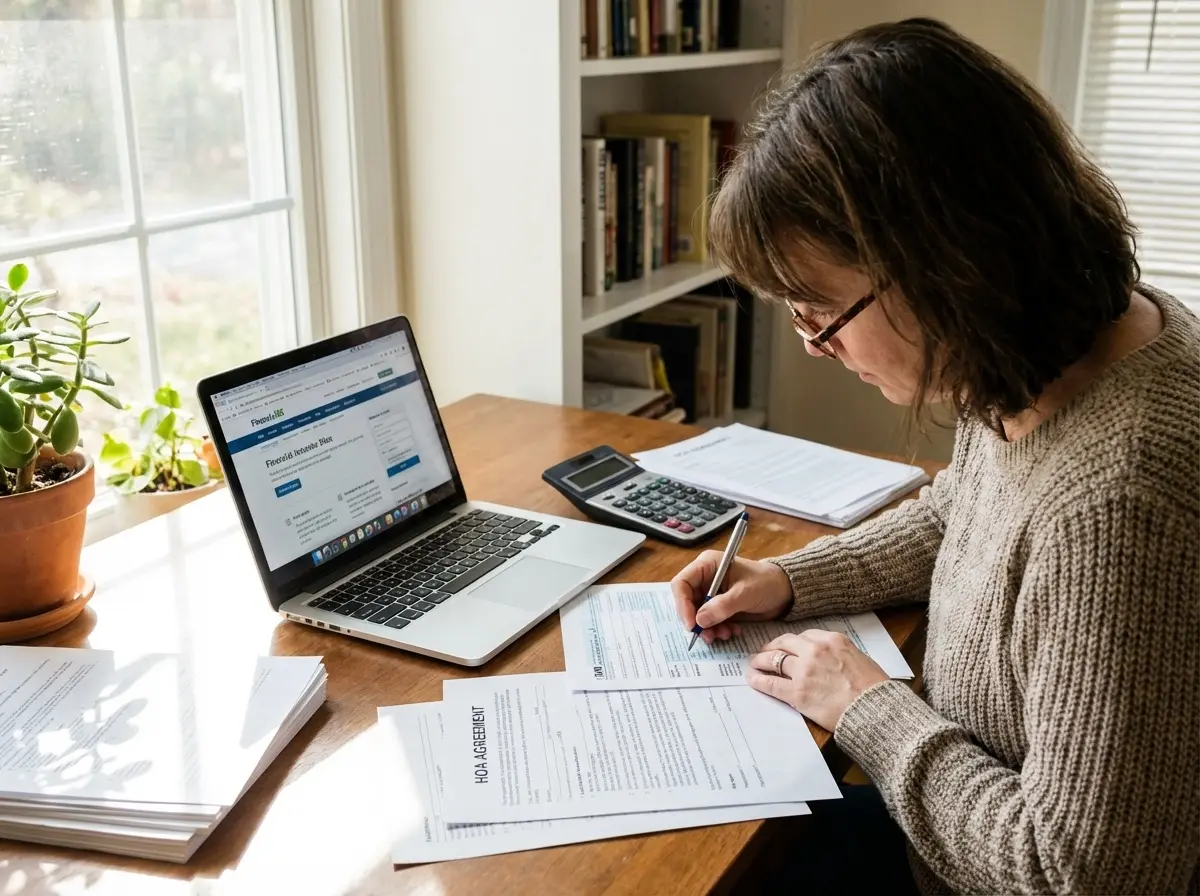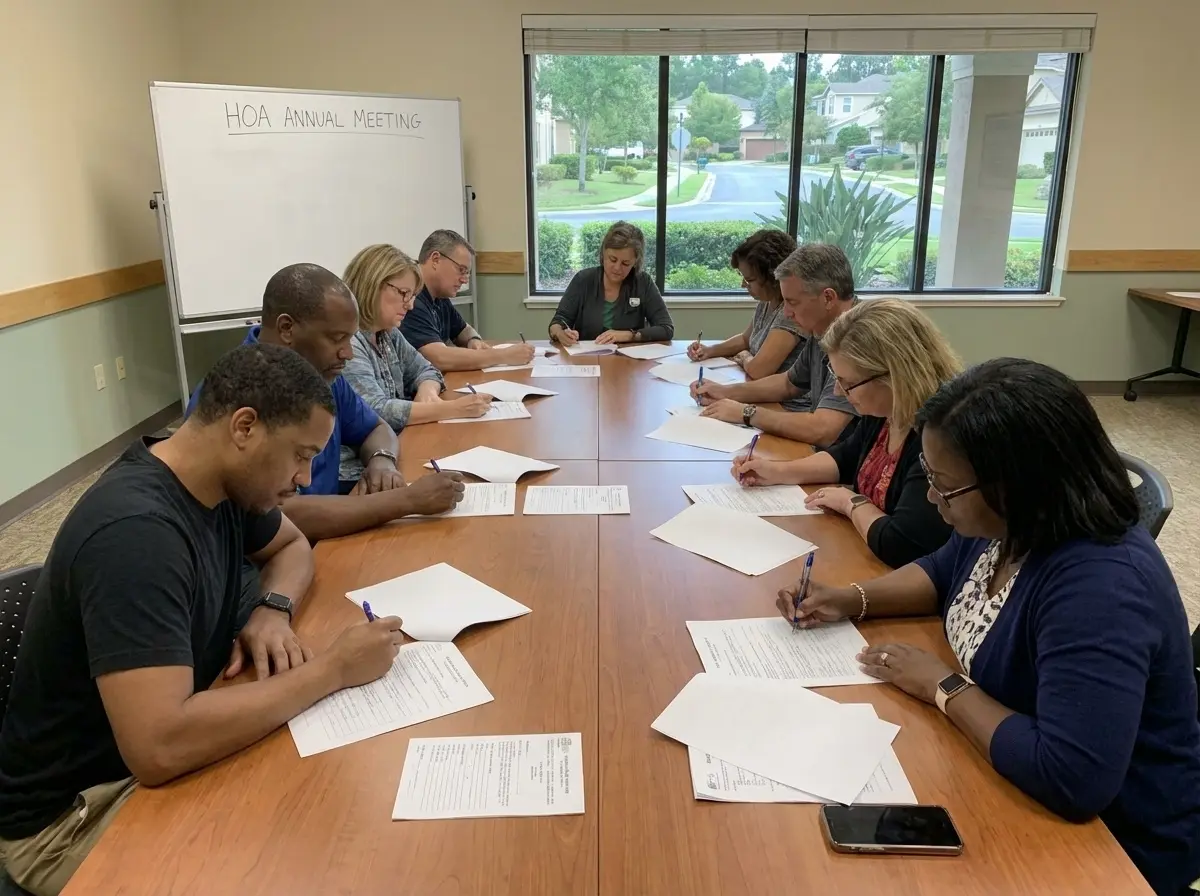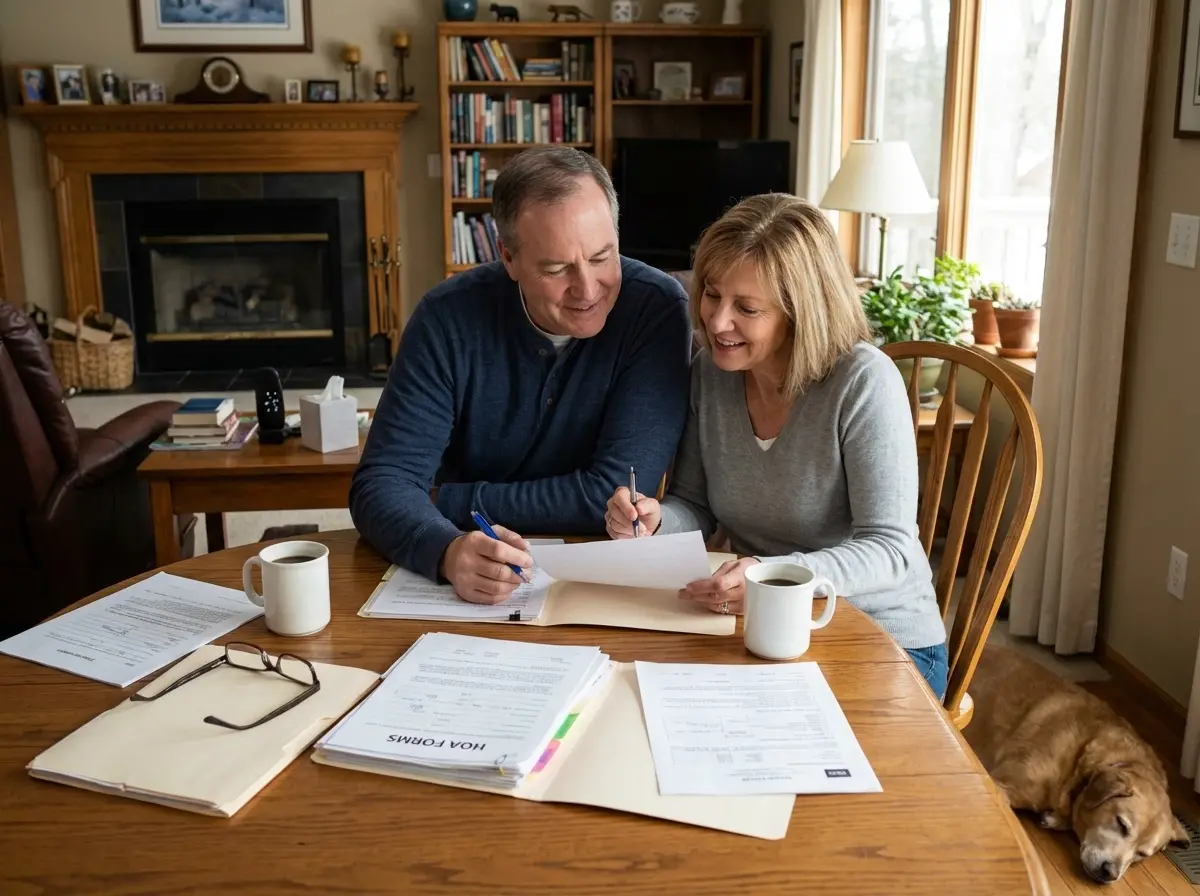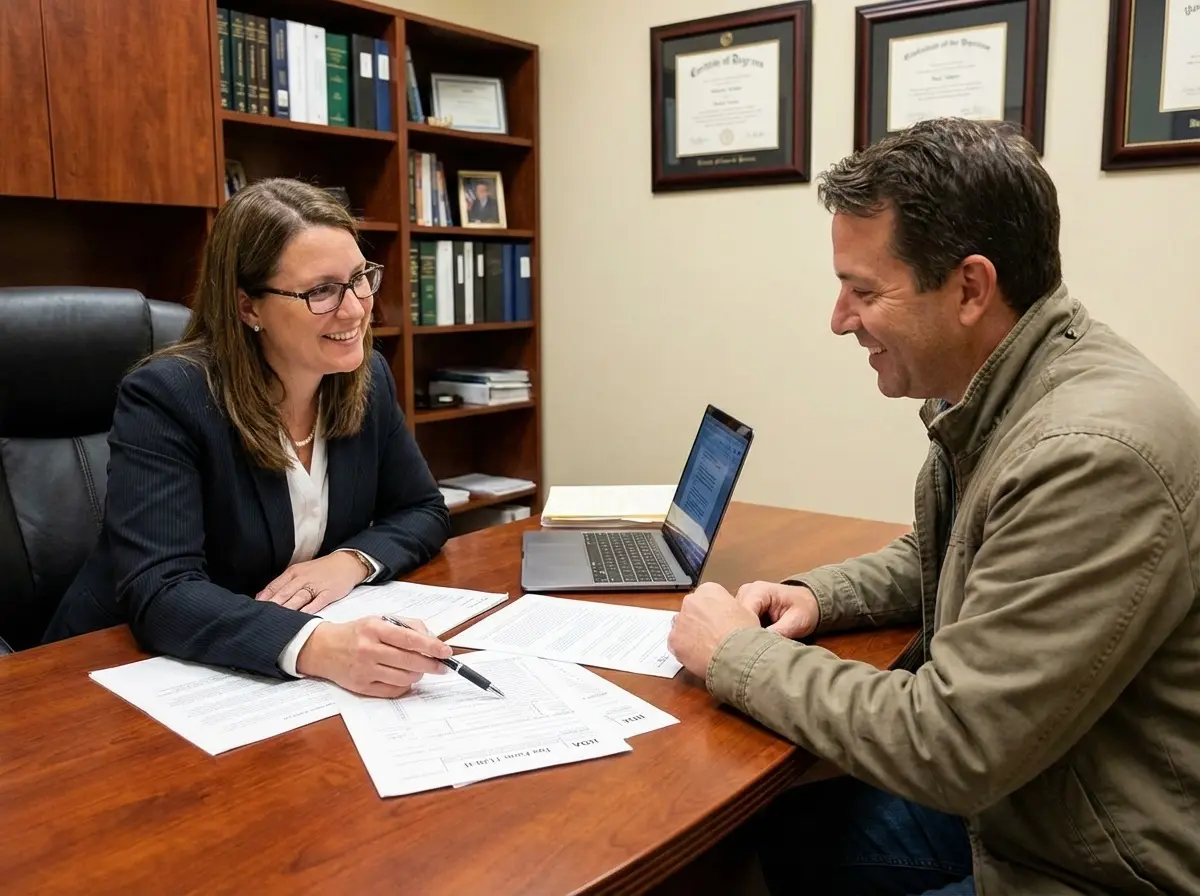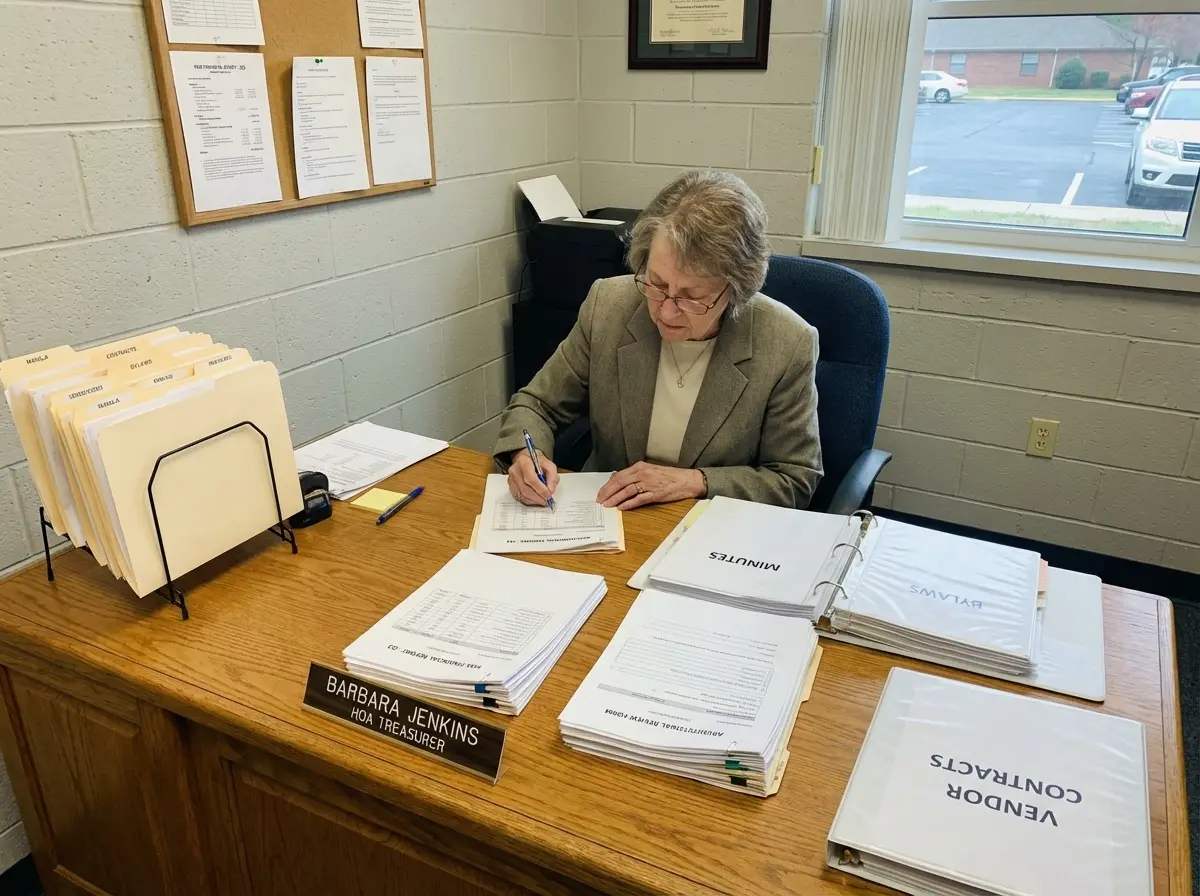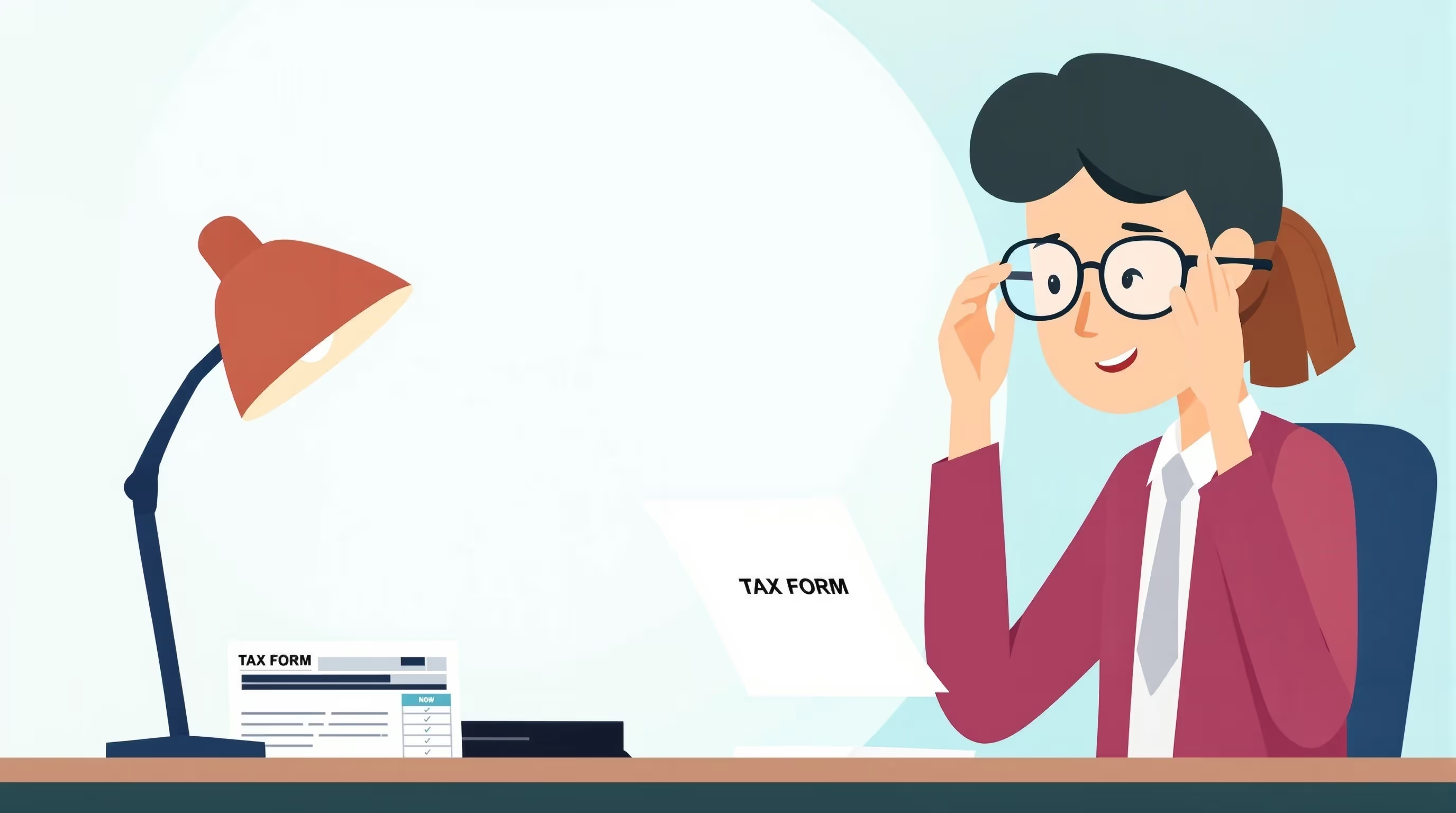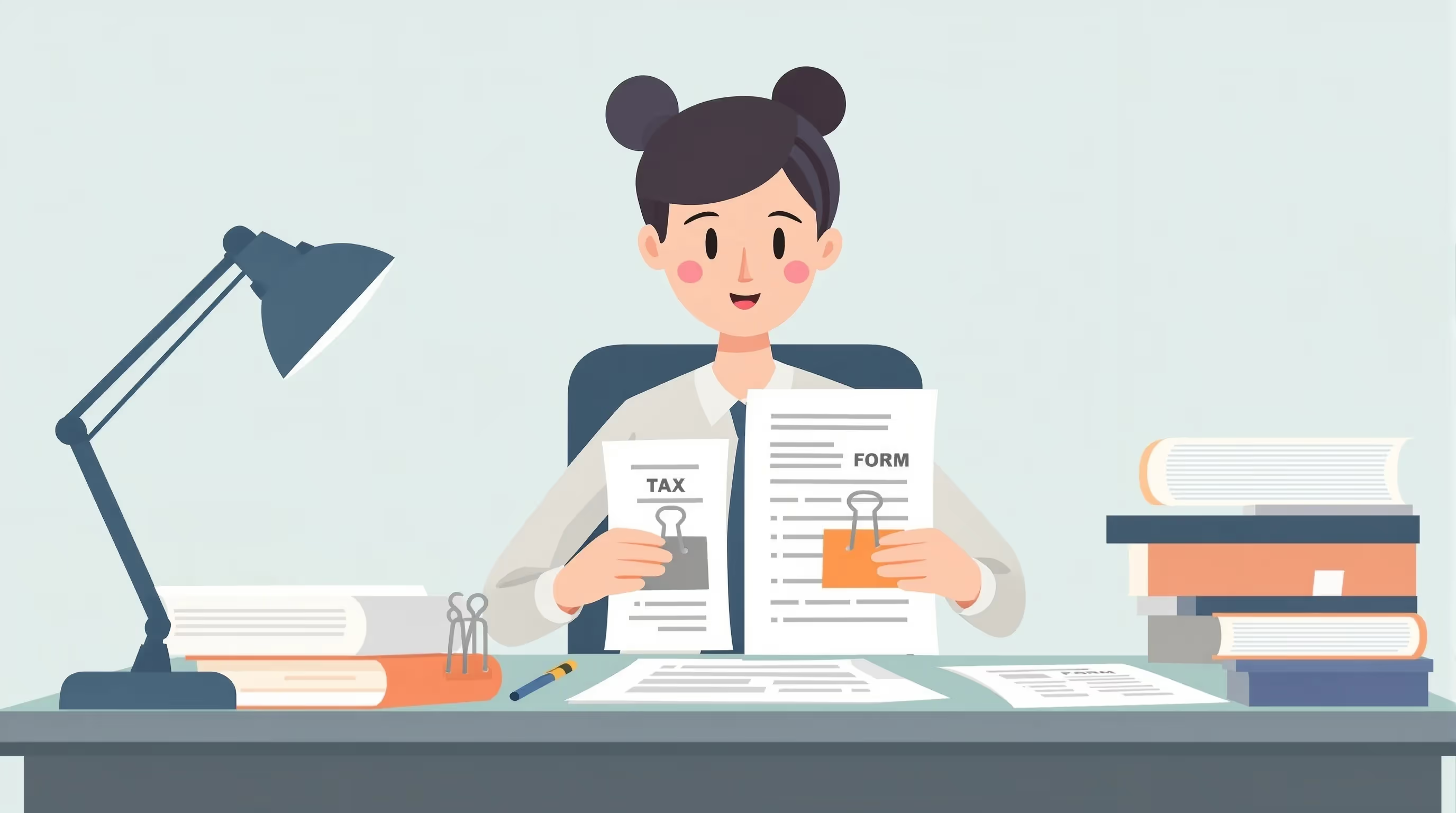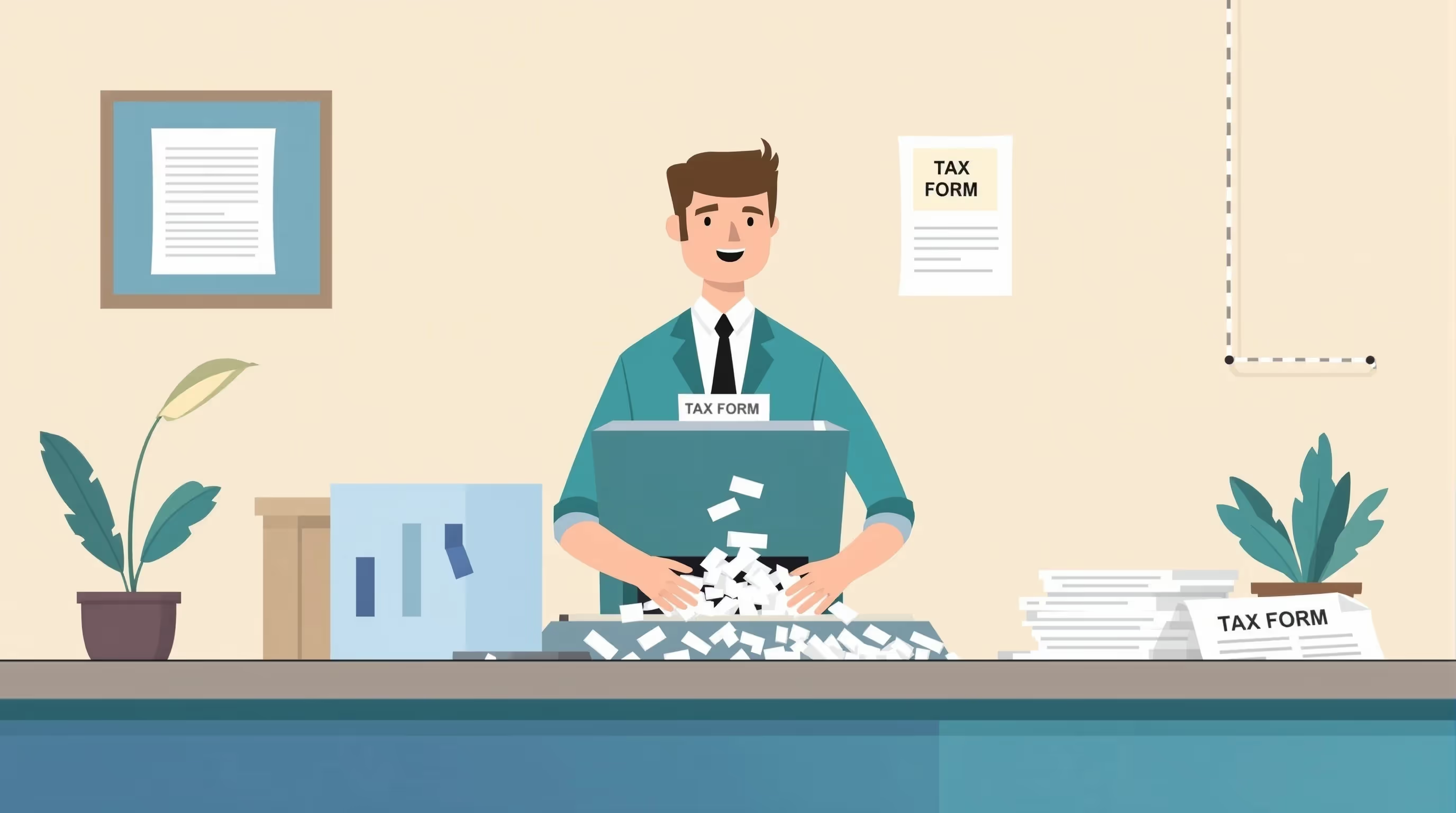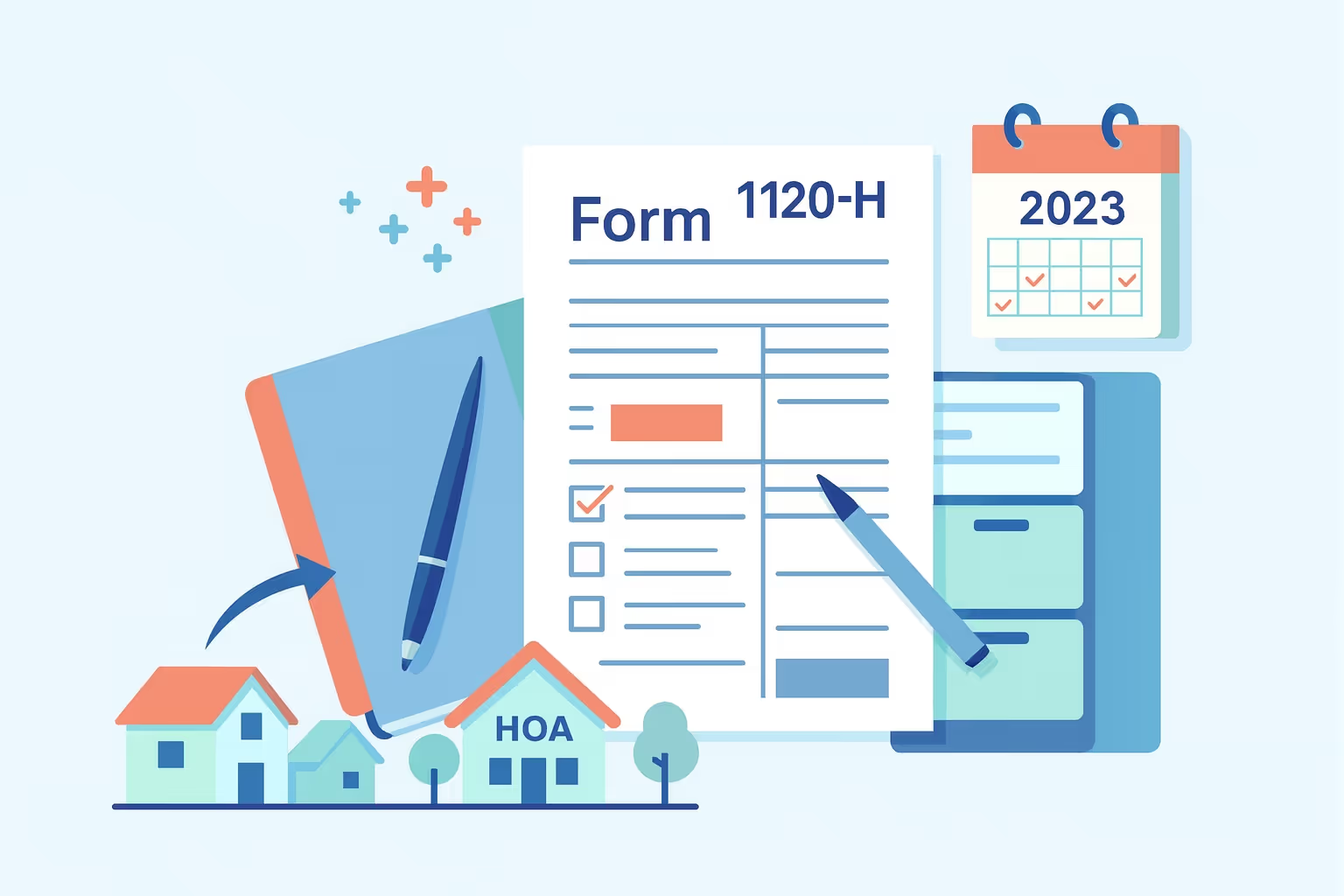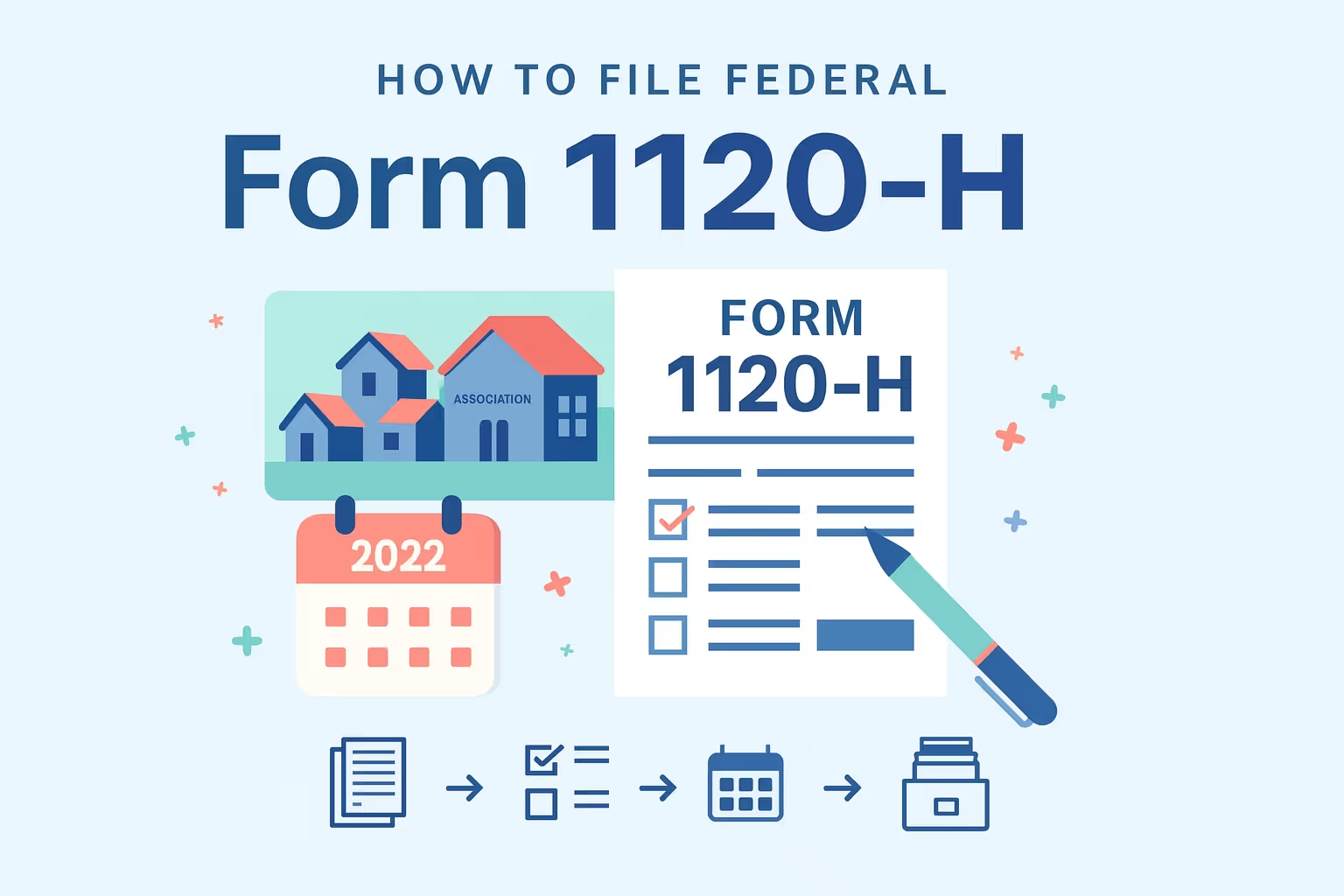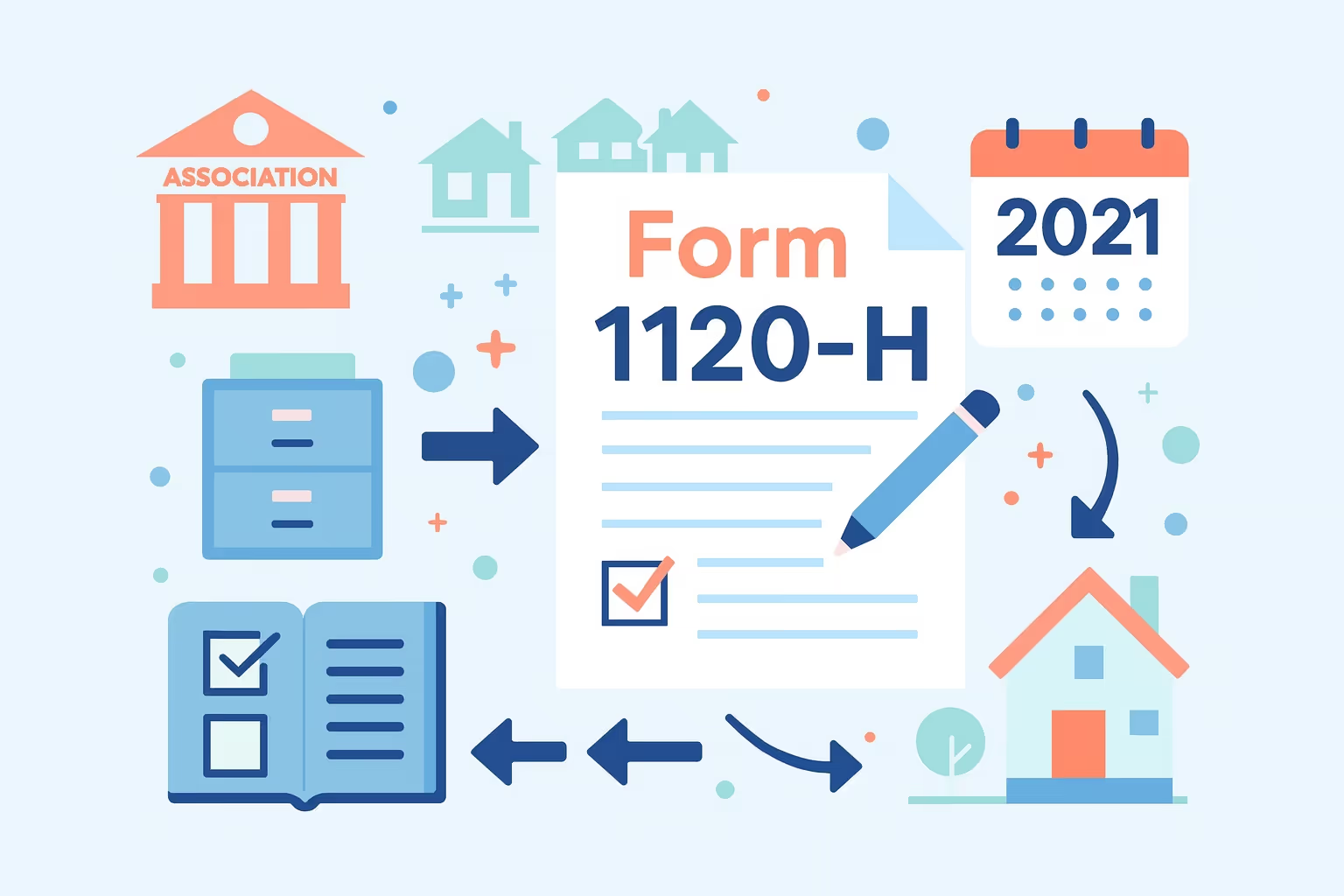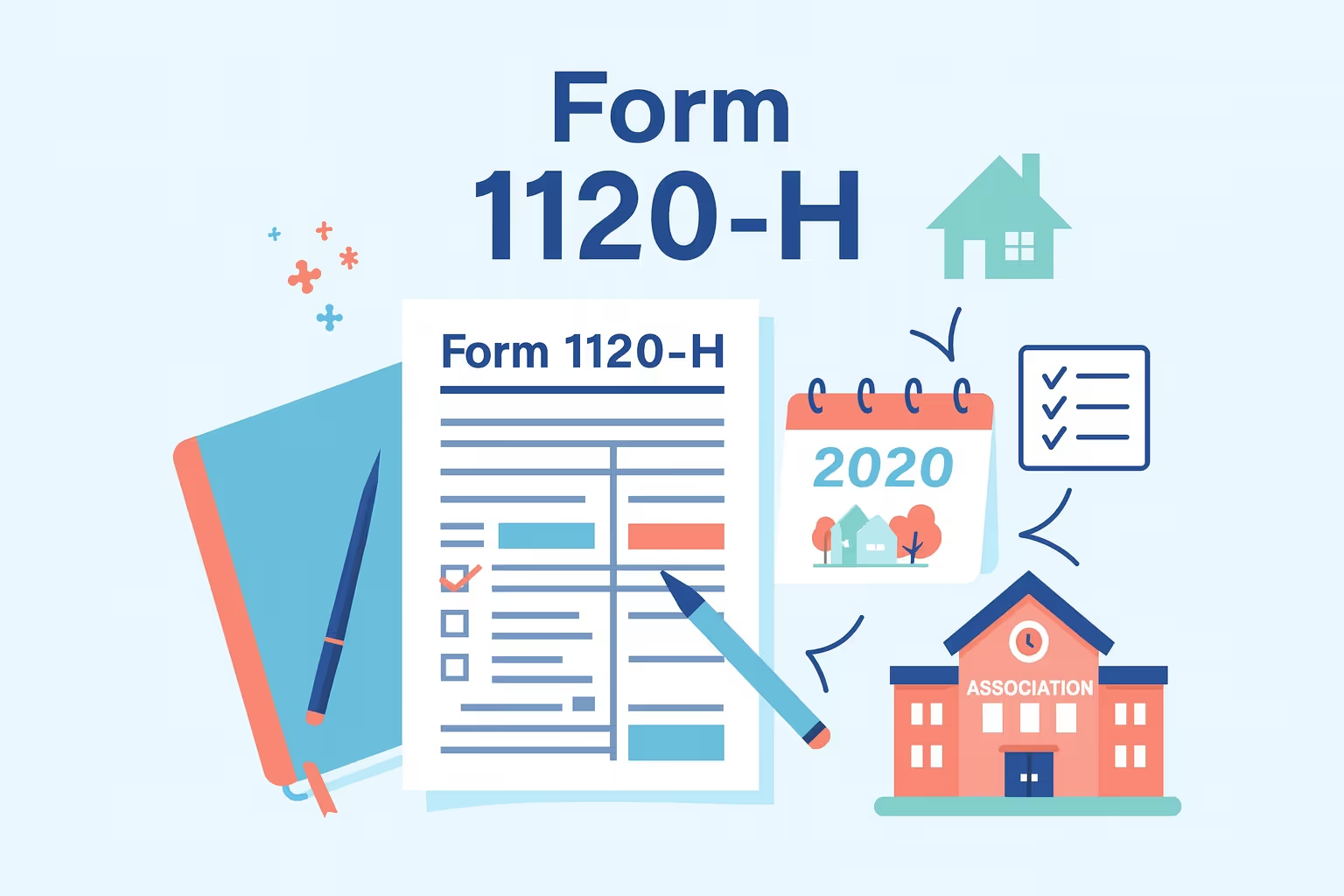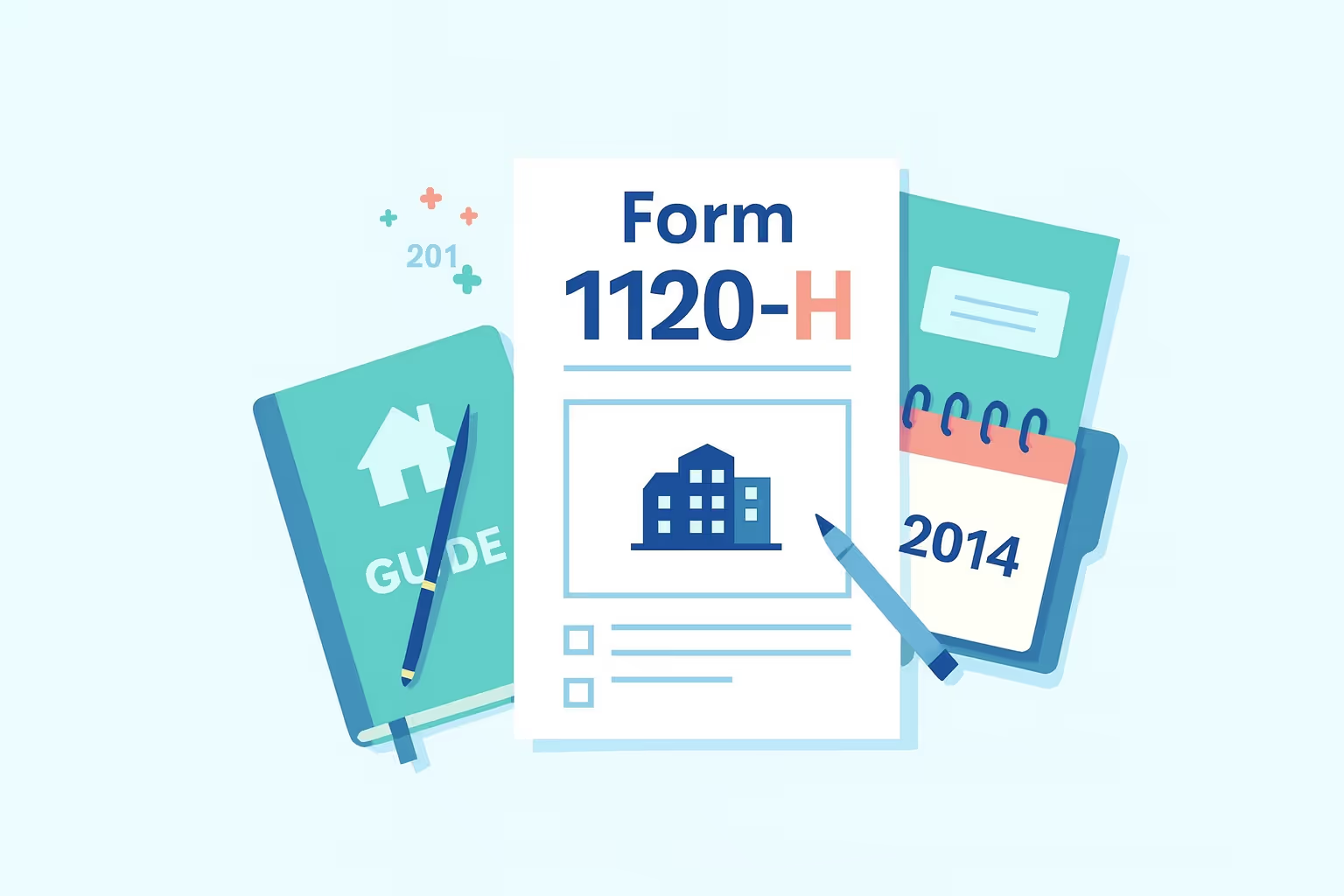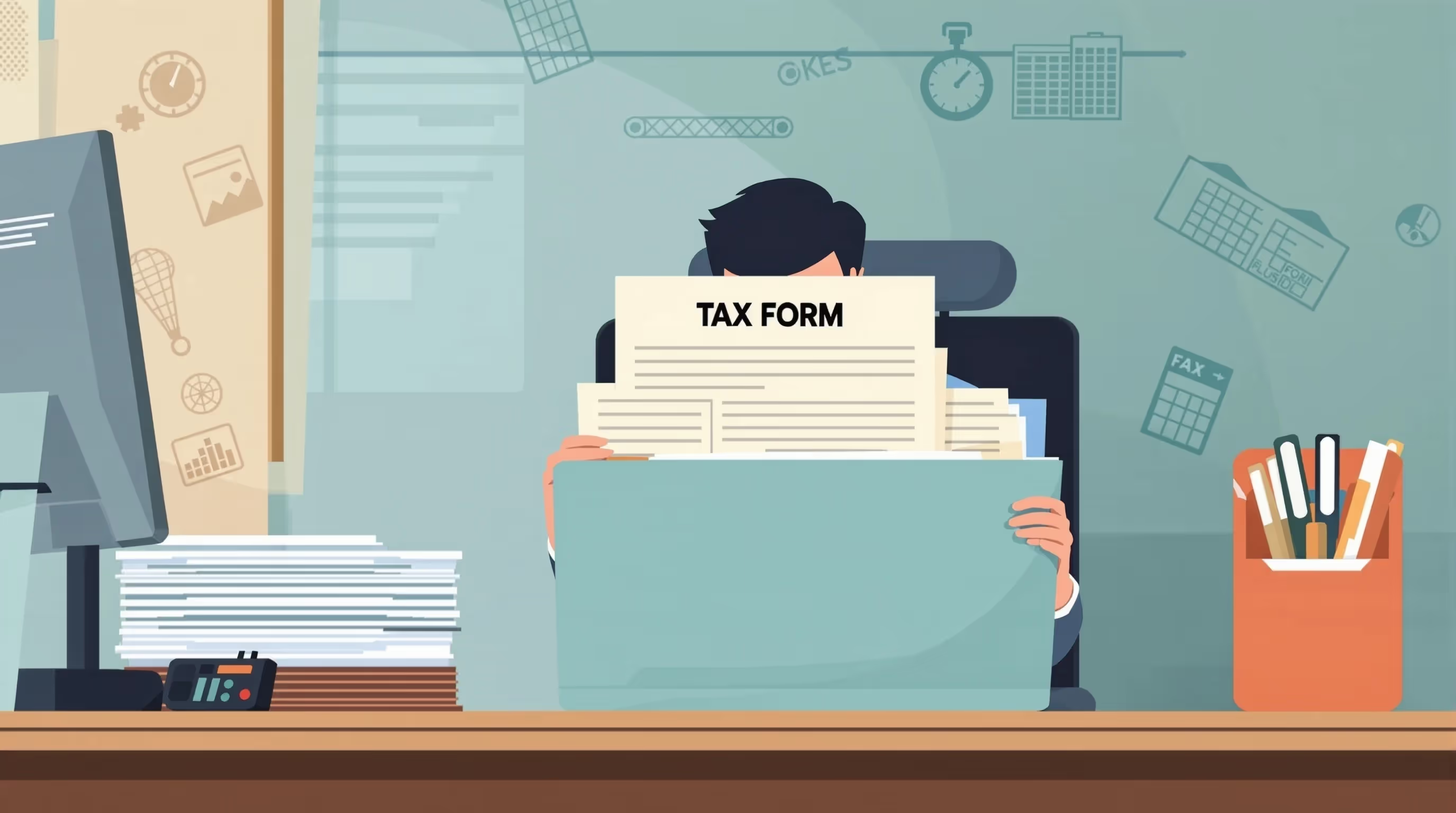
What IRS Form 1120-H (2017) Is For
IRS Form 1120-H (2017) is the income tax return homeowners' associations use when they qualify under Section 528 of the Internal Revenue Code. This tax form allows a homeowners association, condominium management association, residential real estate association, or timeshare association to exclude exempt function income from its gross income.
Filing Form 1120-H offers specific tax benefits because exempt function income consists mainly of membership dues, assessments, and fees tied to association property and the association’s services. When the homeowners' association qualifies, it can reduce its income tax liability and simplify its federal tax returns for the tax year. This option often results in a streamlined corporation income tax return filing process and helps many HOAs manage tax planning more efficiently.
When You’d Use Form 1120-H for 2017 (Late or Amended Filing)
Associations use Form 1120-H for 2017 when filing late or when correcting a previously filed tax return. Late filings occur when the homeowners' association files after the due date, typically the fifteenth day of the fourth month following the end of the year. IRS notices often alert an association manager that the HOA’s tax return must be submitted to avoid penalties.
Amended tax returns may be necessary when the HOA misreported exempt income, taxable income, or non-exempt income, or when tax deductions were incorrectly claimed. Associations may also need to correct tax forms if real estate taxes, property taxes, or other required items were improperly recorded. Because the refund window for the 2017 tax year closed in 2021, most associations can no longer claim refunds, though amendments may still be required to comply with federal tax return rules and state income tax return requirements.
Key Rules Specific to 2017
- Penalty increase for late filings: The Internal Revenue Service has increased the minimum penalty for returns filed more than 60 days late to the lesser of the unpaid tax or $210.
- Flat tax rate requirements: A 30% tax rate applies to taxable income for most associations, while a 32% flat tax rate applies to timeshare associations.
- Qualification tests for filing Form 1120-H: The homeowners association qualifies only if at least 60% of the association’s gross income is exempt function income and at least 90% of the association’s expenditures relate to association property or the association’s services.
- Paper-only filing for the 2017 tax year: Due to the unavailability of electronic filing, the homeowners association submitted IRS Form 1120-H (2017) by mail to the IRS service center designated for its state.
Browse more tax form instructions and filing guides in our Forms Hub.
Step-by-Step (High Level)
- Request IRS transcripts: Request IRS transcripts using Form 4506-T to confirm filing history, non-exempt expenses, prior tax payments, and any earlier federal tax returns.
- Download the correct 2017 tax form: Download the IRS Form 1120-H (2017) version because other forms or current-year versions cannot be used to file federal tax returns for this tax year.
- Prepare supporting schedules and records: Prepare schedules such as Form 4136 and gather records on property taxes assessed, excess membership dues, capital gains, and the association’s income.
- Mail the completed HOA tax return: Mail the HOA tax return to the proper IRS service center listed in the 2017 instructions, making sure the association’s gross income and taxable income are correct.
- Keep detailed documentation: Maintain certified mail receipts, tax preparation worksheets, HOA tax summaries, IRS notices, and any documents used to prepare the HOA’s tax return.
Learn more about federal tax filing through our IRS Form Help Center.
Common Mistakes and How to Avoid Them
- Misclassifying income: Identify exempt function income correctly and separate non-exempt income, such as facility rentals or non-member charges, to ensure accurate net income reporting.
- Failing the 60% and 90% tests: Confirm that the HOA’s gross income and the association’s expenditures meet IRS standards before choosing Form 1120-H instead of Form 1120.
- Using the wrong tax rate: Apply the 30% flat tax rate for most HOAs and the 32% rate for a timeshare association to avoid miscalculating tax liability.
- Forgetting the $100 automatic deduction: Subtract the required $100 deduction to correctly reduce taxable income and comply with IRS Form 1120-H rules.
- Submitting incomplete or illegible tax forms: Review all tax forms for signatures, precise figures, and readable pages to prevent delays or rejections by the Internal Revenue Service.
- Mailing to the wrong IRS address: Follow the 2017 filing instructions to send the tax return to the correct IRS service center and avoid processing delays.
Learn more about how to avoid business tax problems in our guide on How to File and Avoid Penalties.
What Happens After You File
The IRS generally processes HOA tax returns in six to eight weeks. Late or amended returns often take longer to process, and the Internal Revenue Service may send notices requesting clarification of income, tax payments, or other supporting documentation. If the homeowners' association owes tax, it may use Form 9465 to request an installment agreement when the balance is $25,000 or less, allowing the HOA to pay principal over time.
If the association disagrees with IRS adjustments, it may request an appeal conference. Ongoing issues, such as missing tax forms or long delays, may qualify for assistance through the Taxpayer Advocate Service. Throughout tax season, the association should maintain records that support the HOA's property expenses, association taxes, and all details included in the tax return.
FAQs
What is IRS Form 1120-H (2017) used for?
IRS Form 1120-H (2017) is used when a homeowners association files its corporate income tax return for that tax year. It allows the HOA to exclude exempt function income from its gross revenue, simplifying HOA tax returns and thereby determining the correct tax liability.
How does exempt function income affect a homeowners' association’s tax return?
Exempt function income reduces taxable income because it includes membership dues and assessments tied to association property. When HOAs file federal tax returns, only non-exempt income is taxed, resulting in lower total tax payments.
When should an HOA use Form 1120-H instead of a corporation income tax return on Form 1120?
An HOA can use Form 1120-H when it meets the required qualification tests and prefers simpler filing requirements. While Form 1120 may offer the lowest tax in some cases, Form 1120-H helps homeowners' associations file federal tax returns more easily.
How do HOA tax returns handle exempt income versus non-exempt income?
HOA taxes apply only to non-exempt income, reported on either Form 1120-H or Form 1120. Exempt income comes from membership dues tied to association property, while non-exempt income must be reported as taxable income.
What are the filing requirements to file Form 1120-H for an HOA?
To file Form 1120-H, the HOA must meet IRS income and expenditure tests, categorize exempt and non-exempt income correctly, and file Form 1120-H by the due date or extension. These filing requirements ensure accurate processing of the HOA tax return.






